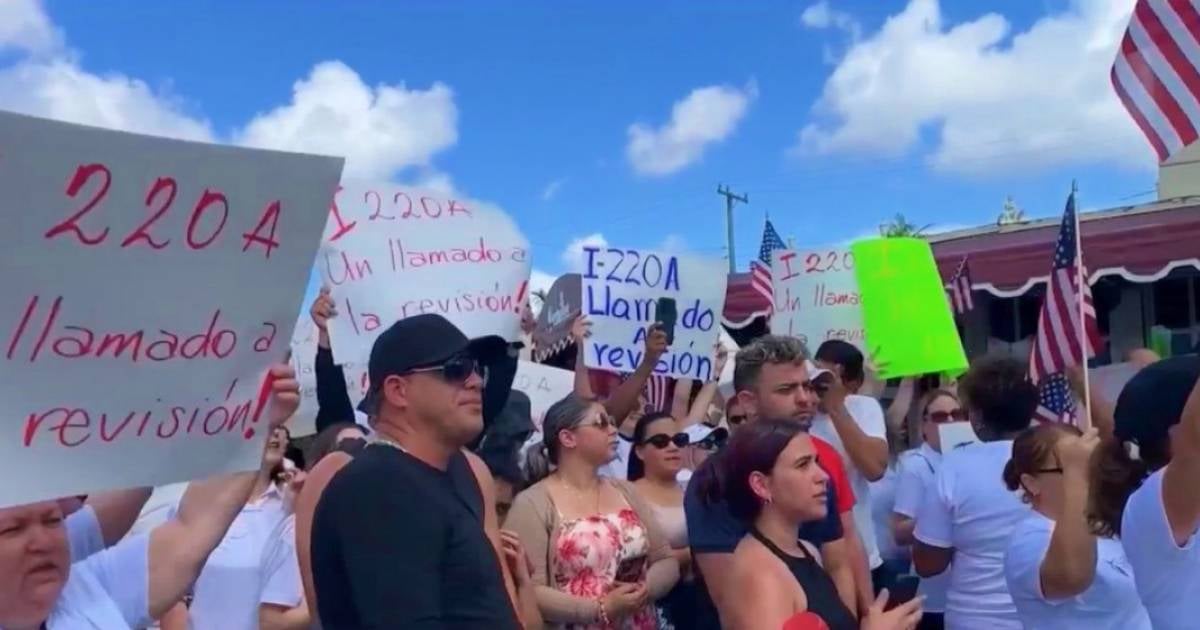Cuban migrants who received an I-220A upon arriving in the United States are experiencing heightened anxiety and uncertainty about their future due to new policies introduced by the Trump administration. This document grants them temporary permission to stay in the country while they work through their legal status, yet many are unsure if it's enough to prevent deportation.
Yunior Luis Pino Pérez, who participated in the July 11 protests, was given an I-220A after crossing the Mexican border. Now residing in Miami, he has applied for political asylum. This year, he faces a second court hearing to argue his case, but remains fearful of deportation. "My life is in danger in Cuba after being blackmailed and forced into exile. I simply cannot return," he expressed to Martí Noticias.
Another individual, Dayvel Álvarez, arrived in July 2022 and sought asylum shortly thereafter. He applied for residency under the Cuban Adjustment Act after a year and a day, yet has received no updates on any process. "I only received a work permit. I'm waiting; everything is stalled. When I check my case, I still don't have a court date," he explained.
Oscar Casanella's situation is distinct. As a political activist in Cuba, he faced harassment and threats from State Security, especially after the San Isidro Movement's standoff in Old Havana in 2020. In 2022, he crossed the border with his young son and pregnant wife, submitting documents proving they were a family to avoid separation. Nevertheless, they were each issued separate documents and did not receive an interview. "We wanted a credible fear interview, but were released with the I-220A without being able to explain we were political refugees," he lamented. Casanella, a biochemist, applied for political asylum and is scheduled for his first court appearance this year.
The new U.S. immigration policy is a source of concern for him, fearing it might implement broad measures without assessing each case individually, potentially affecting those with strong asylum claims. Understanding the criteria immigration officers use at the border to issue an I-220A or parole remains a challenge for many. There are instances of families entering together but receiving different treatments.
According to a 2022 report from The Associated Press, the Border Patrol opted to issue paroles because it was a faster process and detention centers couldn't accommodate the influx of migrants. While some Cubans with the I-220A have secured residency under the Cuban Adjustment Act, in 2023, the U.S. Board of Immigration Appeals (BIA) ruled against viewing the form as a path to legal residency, pushing Cubans to seek political asylum instead.
Thousands of Cubans who arrived between 2017 and 2024 find themselves in a legal limbo, awaiting their cases to be heard in immigration court. Some lawyers caution they could remain in this state for years due to the increasing number of applications.
Understanding the I-220A and Its Impact on Cuban Migrants
What is an I-220A document for Cuban migrants?
The I-220A is a document that grants temporary permission to Cuban migrants to remain in the United States while they resolve their legal status. It does not guarantee protection from deportation.
Why are Cuban migrants with I-220A concerned about deportation?
Cuban migrants are worried because the temporary nature of the I-220A does not assure them that they won't be deported, especially with new policies that might not consider individual cases.
What challenges do Cuban migrants face with the new U.S. immigration policies?
The challenges include potential broad measures that do not assess each asylum case individually, leaving many in legal limbo as they await their immigration court hearings.
